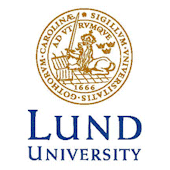In my PhD project - "The malleability of political attitudes" - I have been exploring the cognitive mechanisms behind attitude change, and how much people know about their own political beliefs. The research builds on findings showing that peoples' deep-seated political beliefs are highly flexible and easily influenced by the situation and observations about their own behavior. I have used experimental methods inspired by the choice blindness paradigm to explore how our minds adapt and update itself in response to new information.
Besides this research, I explore novel and innovative techniques to study public opinion.
Here is a short video clip from a documentary showing my research in action: http://www.lucs.lu.se/2018/07/choice-blindness-in-science-of-magic-documentary/
And here is a short piece summarizing some of the latest findings: https://www.psychologytoday.com/intl/blog/knowing-decisions/201902/rationalizing-our-way-new-political-attitudes
Experience
-
–presentPhD candidate, Lund University
-
2019–presentCEO & analyst, Parlametric
-
2010–2012Research assistant, Lund University
Education
-
2009Department of Philosophy, Lund University, M.Sc. in cognitive science
-
2008Department of Linguistics & Philology, Uppsala University, B.A. in general linguistics
Publications
-
2020Depolarizing American voters: Democrats and Republicans are equally susceptible to false attitude feedback, PLOS ONE
-
2019Correction of manipulated responses in the choice blindness paradigm: What are the predictors?, Proceedings of the 41st Annual Conference of the Cognitive Science Society
-
2018False beliefs and confabulation can lead to lasting changes in political attitudes, Journal of Experimental Psychology: General
-
2016Lasting political attitude change induced by false feedback about own survey responses, Proceedings of the 38th Annual Conference of the Cognitive Science Society
-
2013How the polls can be both spot on and dead wrong: Using choice blindness to shift political attitudes and voter intentions, PLOS ONE
-
2012Lifting the veil of morality: choice blindness and attitude reversals on a self-transforming survey, PLOS ONE
- Lund, Sweden
- Website
- Article Feed
- thomas.strandberg@lucs.lu.se
- ORCID
- Joined


